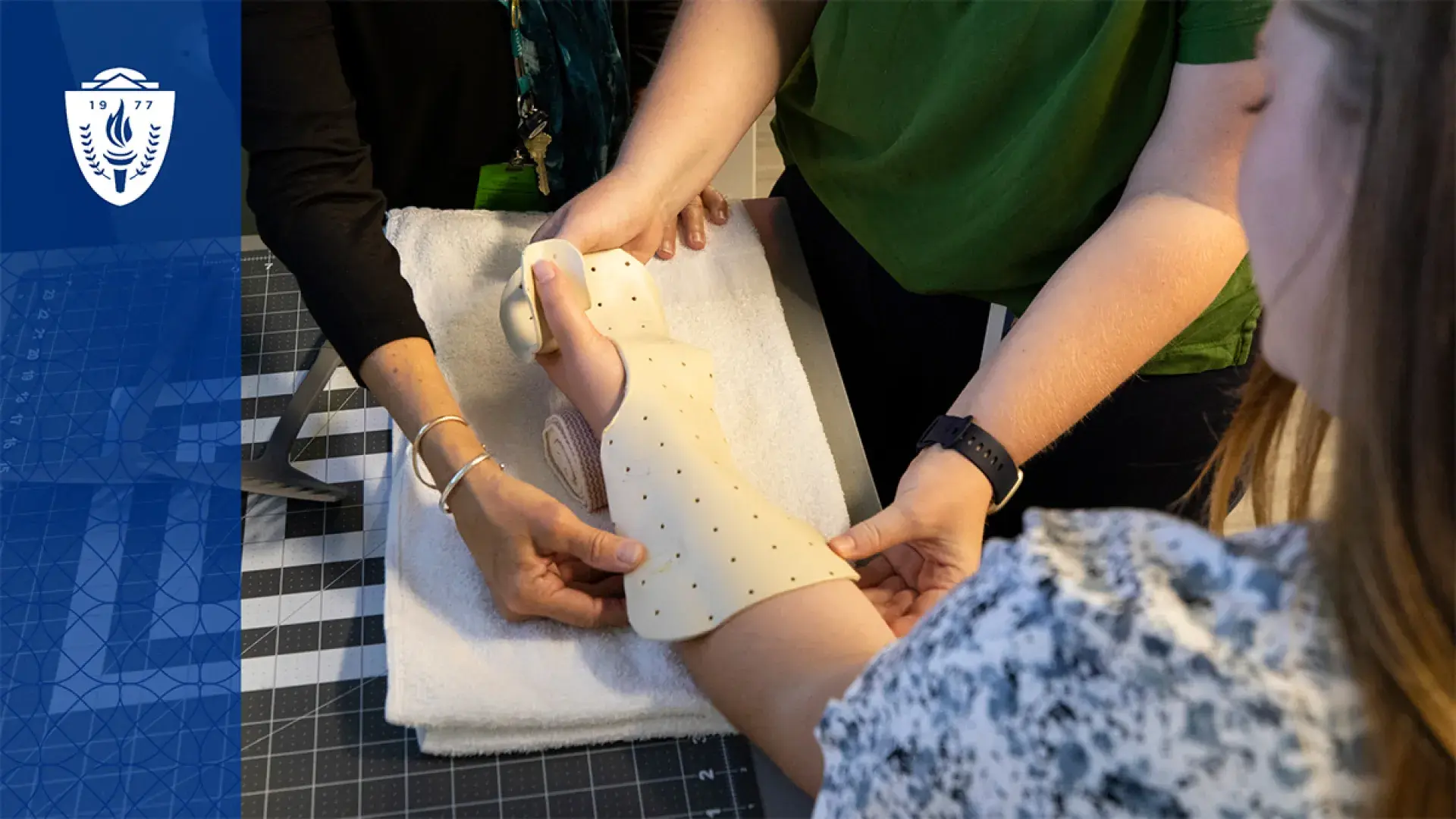
If you aspire to lead in clinical practice, contribute to OT research, or educate future occupational therapists, an OTD degree offers advanced training that can set you apart in this rewarding field. Understanding how an OTD impacts people and why it’s increasingly valued in healthcare can help you decide if this path aligns with your goals.
What is an OTD Degree?
An OTD, or Doctor of Occupational Therapy, is a degree designed for those seeking advanced training in occupational therapy. An OTD degree can be pursued by those with a bachelor’s or a master’s degree. The OTD program emphasizes clinical practice, leadership, research, and innovative approaches to treatment. Graduates with an OTD degree are well-prepared to engage in complex, specialized care, lead interdisciplinary teams, and contribute to the field’s evolving research base. An entry-level OTD degree are for individuals who seek to start a career in occupational therapy. A post-professional OTD degree is an option for occupational therapist who are bachelor’s or master’s-trained who are currently working as OTs.
Key components of an OTD program include:
- Advanced Clinical Skills: Training that goes beyond foundational therapy skills to include specialized treatment techniques and cutting-edge approaches.
- Leadership and Management: Coursework in leadership, healthcare policy, and ethics prepares OTDs to take on supervisory or managerial roles.
- Research and Evidence-Based Practice: Doctoral programs emphasize research, encouraging OTDs to integrate the latest scientific evidence into their practice and contribute original research to the field.
- Capstone Projects: Many programs include a capstone project, allowing students to design and execute a project that addresses a specific problem in OT practice or education.
Career Outcomes with an OTD Degree
An OTD degree opens up a wider range of career opportunities and often leads to roles with higher responsibility and influence within the OT field. Some potential career paths and roles available to those with an OTD are:
- Advanced Clinical Practice
OTD graduates are equipped to deliver complex care for diverse patient populations, from pediatric to geriatric. With advanced training, they are often qualified for specialized roles in areas like neurorehabilitation, mental health, hand therapy, and assistive technology. These positions demand in-depth knowledge and skills that the OTD degree provides.
- Leadership and Administrative Roles
Many occupational therapists with an OTD move into leadership positions, managing teams of therapists, developing departmental policies, or overseeing OT programs within healthcare settings. The management and leadership skills emphasized in OTD programs prepare graduates to advocate for their clients and profession on a larger scale, making a broader impact within their organization or community.
- Research and Academia
Those with a Doctor of Occupational Therapy degree are also well-positioned to pursue academic or research-based careers. In academia, they may teach and mentor future occupational therapists, conduct research, and contribute to the development of evidence-based practices. Research roles allow OTDs to study and address key issues in OT, ultimately improving client care and advancing the field as a whole.
- Policy and Advocacy
Some OTD graduates take their expertise into public health, policy, and advocacy, working on initiatives that improve healthcare access, influence OT-related regulations, and address societal health challenges. These roles allow OTDs to impact OT practice at a systemic level, often collaborating with policymakers, health organizations, and nonprofits.
Key Benefits of Pursuing an OTD
If you’re considering the OTD path, here are several key benefits to keep in mind:
- Expanded Career Opportunities: An OTD degree can lead to roles that may not be accessible with a master’s degree, especially in leadership, academia, and specialized practice.
- Enhanced Earning Potential: Due to the advanced skills and qualifications an OTD provides, graduates often have access to higher-paying positions.
- Contribution to Field Advancement: Through research, innovation, and mentorship, OTDs are in a unique position to shape the future of OT practice, improving care quality for future generations.
- Increased Client Impact: With an OTD, occupational therapists are better equipped to address complex patient needs, making a meaningful difference in their clients’ lives through personalized and effective treatments.
Deciding If the OTD Path is Right for You
Choosing to pursue a Doctor of Occupational Therapy degree is a significant commitment. Here are a few questions to consider as you determine if this path aligns with your personal and professional goals:
- Are you passionate about making a long-term impact in the OT field? If you envision a career where you lead, teach, or develop new treatment methods, an OTD may be an ideal choice.
- Do you want to specialize or take on advanced clinical roles? An OTD provides the training needed for specialized practice, which can lead to advanced clinical roles in areas like pediatric therapy, hand therapy, or mental health.
- Are you interested in teaching or conducting research? The OTD prepares you for roles in academia and research, where you can mentor students and contribute new knowledge to the field.
- Do you want the skills to lead teams or departments? OTD programs emphasize leadership, which is essential if you aspire to management roles within healthcare or educational settings.
With an aging population and rising demand for specialized rehabilitative care, occupational therapists with advanced expertise are needed to meet healthcare challenges. Additionally, with a growing focus on evidence-based practice and interdisciplinary care, those with a Doctor of Occupational Therapy degree are positioned to contribute meaningfully to both patient outcomes and the broader healthcare landscape.
The OTD Path to a Fulfilling Career
An OTD degree is more than just an academic achievement; it’s a step toward becoming a leader, innovator, and advocate in occupational therapy. If you are dedicated to deepening your expertise, pursuing advanced clinical practice, or contributing to research and education, the OTD provides invaluable opportunities. As you explore how to become an occupational therapist, consider the long-term impact you want to have in your career and the ways an OTD can help you achieve your professional goals. By investing in this advanced training, you’re preparing to make a difference in the lives of clients and in the field of OT as a whole.



